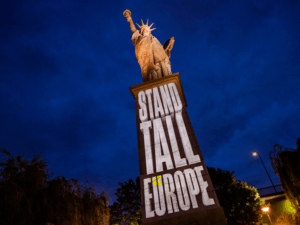TL;DR
- The Netherlands is increasingly reliant on US cloud services, raising concerns over data security.
- Expert analysis highlights potential risks, particularly regarding access to data by the US government.
- The recent Dutch audit shows a lack of awareness about these risks among ministries.
- European reliance on US technology poses sovereignty questions amid changing political climates.
As Europe navigates the complexities of technology dependence, the Netherlands stands at a crossroads in its reliance on US Big Tech. Recent concerns have emerged about the security implications of using American cloud services, particularly in light of the changing political landscape in Washington. Experts warn of the potential risks, especially regarding access to sensitive European data by US authorities under current legislation.
Security Risks Highlighted by Dutch Audit
According to a recent report by the Netherlands Court of Audit, while the Dutch government has ramped up its use of cloud services, most ministries remain oblivious to the associated risks. The audit revealed that the government’s operations are experiencing excessive exposure to potential security threats.
“The potential harm caused by an interruption of public services could disrupt the country and society,” the auditing agency noted.
Among the most frequently used cloud services by the Netherlands government are Google, Microsoft, and Amazon Web Services. This overreliance raises significant concerns, especially with a government that might leverage its legal frameworks to access international data across various global servers.
The Trump Factor: CLOUD Act Implications
One major worry is the reinstatement of Donald Trump as the US President, which could have ramifications for how European data is handled. The so-called Clarifying Lawful Overseas Use of Data Act (CLOUD), signed into law by Trump, allows US law enforcement agencies to subpoena data held by American companies, regardless of where it is stored globally. This creates a pathway for potentially accessing sensitive Dutch governmental data under certain conditions.
Maaike Okano-Heijmans, a senior research fellow at the Clingendael Institute, articulated the primary risk associated with these cloud services:
“If the Dutch government or European governments were to work in the cloud, and it’s cut off, then we cannot do our work any longer.”
These fears aren’t unfounded. Experts have indicated that there exists a tangible risk regarding the availability and sovereignty of European data, particularly as relations between Europe and the US become increasingly strained over trade and regulatory policies.
Growing Tensions and the Need for EU Resilience
The situation illustrates a broader issue confronting Europe—it must address its over-reliance on US technology while ensuring its sovereignty in digital affairs. As competition escalates in the tech landscape and political tensions rise, European nations must look towards diversifying their tech partnerships and investing in local solutions.
As Zsolt Szabo, the state secretary for digitalization in the Netherlands, notes, “The chance of the American government accessing data is very small,” emphasizing encryption as a possible buffer against unapproved access. However, the uncertainty generated by fluctuating US policies calls for a robust strategy from Europe to bolster its own digital sovereignty.
Conclusion: Navigating the Future
The challenges facing the Netherlands serve as a microcosm for the broader European experience in dealing with external tech dependencies. With a detailed examination of these risks, it is increasingly clear that Europe must act quickly to establish regulatory frameworks that can safeguard its data while encouraging innovation that is not tied to US interests.
As European leaders consider their next steps, the overreliance on American technology stands as a pressing concern that could have lasting implications for the security and integrity of European data systems.
References
[^1]: Anna Desmarais (2025). “Is overreliance on US Big Tech a threat to Europe? The Netherlands may soon find out“. Euronews. Retrieved March 03, 2025.
[^2]: David Kirichenko (2025). “Noose tightens as Europe confronts its dependence on US technology“. Asia Times. Retrieved March 08, 2025.
[^3]: Commentary by Zach Meyers (2025). “Why tech firms should not stoke transatlantic tensions“. Centre for European Reform. Retrieved March 03, 2025.
[^4]: “Trump takes aim at ‘overseas extortion’ of American tech companies: the EU-US rift deepens”. Institute for Security Studies (EU). Retrieved February 27, 2025.



